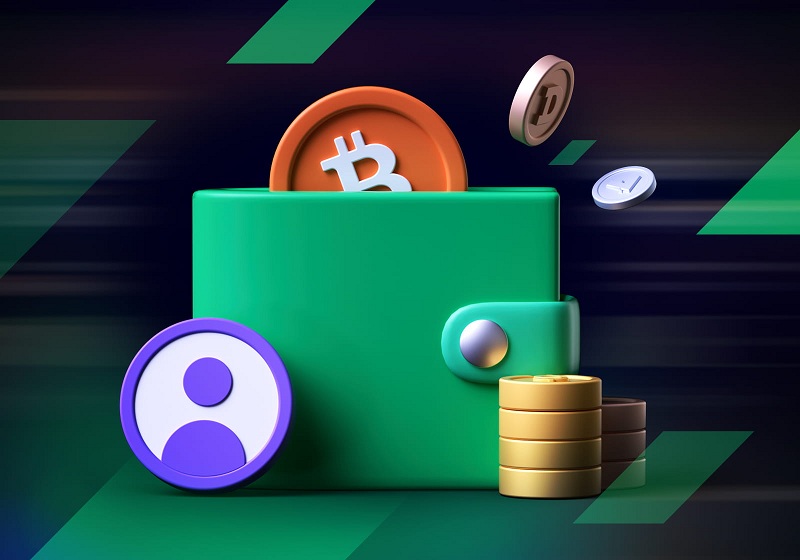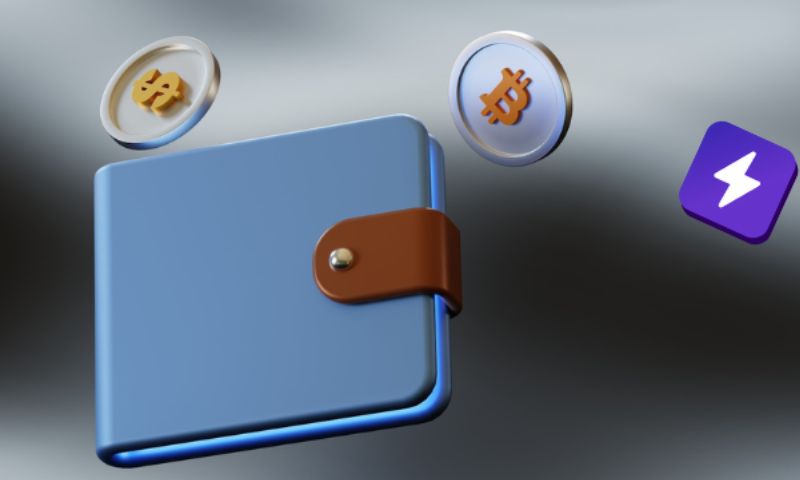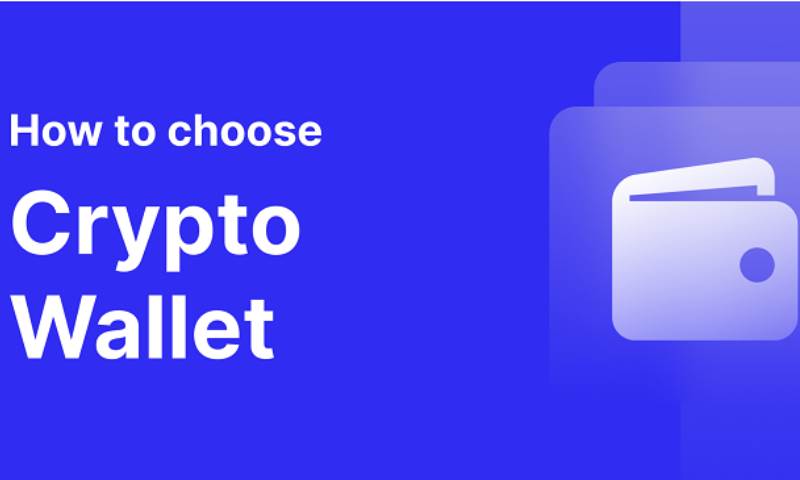How to choose a crypto wallet is essential to keep your digital coins safe. If you pick the wrong one, it’s like building a vault with paper walls — pointless and risky! But nail it, and you’ve got Fort Knox in your pocket. So, let’s slice through the jargon and find a wallet that suits your style, whether it’s a beefed-up safe or a slim cardholder. Ready for a secure money guide that’s clear as daylight? Buckle up, because we’re diving into the smartest ways to store your crypto!
Understanding the Different Types of Digital Wallets
Exploring Hardware vs. Software Wallets
When picking a crypto wallet, think like you’re choosing a new house for your money. Hardware wallets are like safe boxes. They keep your digital cash offline, away from hackers. Think of Ledger or Trezor; these are like secure bank vaults for your crypto. They are great for holding crypto for a long time.
Software wallets, however, are more like your wallet in your pocket. They live on your computer or phone, so they’re always with you. This makes them great for daily spending or trading. But, since they are online, they do face more risks. Software wallets need strong passwords and should update often.
The Role of Cold Storage and Hot Wallets
Now, let’s chat about cold storage and hot wallets. Cold storage wallets are hardware wallets or paper wallets. They are not hooked up to the net. So they are very hard to hack, like a safe hidden in a wall. They are top-notch for keeping your crypto safe for years.
On the flip side, hot wallets are software wallets; always online and ready to go. Hot wallets are on your phone or desktop, ready for quick sends or receives. This is super for trading fast or buying things with crypto. But, being online means you’ve got to be careful. They can face malware or phishing attacks, so you need strong security steps.
Mobile wallet apps make paying with crypto easy out and about. Desktop wallets give you more control and security at home. Each has its own mix of ease and security. Always back up your wallet, so you don’t lose your funds if something goes bad.
Paper wallets are a simple, yet strong way to store crypto. You print your keys on paper and keep it ultra-safe. No tech means no hacking, but you could lose it or damage it, so be smart about how you keep it.
When you’re selecting a cryptocurrency wallet, look at all the types of digital wallets. Ask yourself how you’ll use your crypto. Do you plan to check it daily or stash it away for years? Think of secure crypto storage solutions that match how you work with your money.
Hardware versus software wallets? It’s about trading off between top security and ease of use. Cold storage for digital assets is the most secure. But hot wallets online offer quick access and use. Safety features in crypto wallets are crucial. Look for a blend that snaps shut your money from bad guys but still lets you use it as needed.
Each choice has pros and cons. It’s smart to weigh them based on how you’ll use your crypto. The best wallet for you is the one that fits your daily life while keeping your digital dough safe.
Evaluating Security Measures in Crypto Wallets
Importance of Encryption and Safety Features
When you’re selecting a cryptocurrency wallet, think safety first. How does the wallet keep your cash safe? Look for encryption. This is like a secret code that keeps your money locked away from thieves. Good wallets mix encryption with other safety tricks. They use things like PIN codes and biometric checks – like a fingerprint – to double-check if it’s really you.
Think about where you will use your wallet. Will you trade a lot, or just keep your cash safe? For trading often, hot wallets online are handy. They stay on the internet so you can move money fast. But they need really good safety features because they are always online. For just keeping cash safe, try cold storage for digital assets. These are usually hardware or paper wallets that you can disconnect from the net.
Seed Phrase Management and Recovery Options
Ever lost a password? With crypto wallets, this can be a big problem. But, there’s a helper – your wallet’s seed phrase. This is a set of words that can bring your wallet back if you lose access. This is huge! Without this, your cash could be gone for good.
For keeping your money safe, write down the seed phrase. Keep it away from the web and hidden. If you have a hardware wallet, store this paper somewhere locked up and safe. When you need to get your money back, just use the words in order. It’s like magic – your wallet comes back, and your money is safe. But, if someone else finds these words, they could take your money. So, keep them as safe as you can.
Some wallets offer extra help. They have special recovery options. For example, they might let you pick a trusted friend who can help you get back in if you’re locked out. Or, they might save your seed words on a super-safe device. When looking at different wallets, ask about these options. This way you can pick a wallet that’s not just secure but also has your back if something goes wrong.
Remember to be careful when backing up your cryptocurrency wallet. If you’re using a mobile app, check that the app has good reviews and comes from a reputable digital wallet provider. For desktop wallets security, make updates and keep your computer safe from viruses.
When you compare crypto wallet options, think about your needs. Do you trade in many types of coins? Then you might want a multi-currency wallet. Do you care about saving on fees? Then look at cryptocurrency wallet fees before you pick one. And, for peace of mind, choose a wallet that fits best with your day-to-day life and security must-haves.
Enhancing User Experience with Wallet Features
Assessing User Interface and Transaction Facilities
When choosing a wallet, think about how you’ll use it. Ask, “Is it easy to use?” You want a wallet with an interface that’s simple and clear. Look for big buttons, easy navigation, and clear help cues. This makes each action—from sending to receiving crypto—easy and less stressful. For better understanding, try demo versions or watch tutorial videos.
Transaction facilities are key, too. Your wallet should offer a smooth way to review past activities. It should let you set transaction limits to help control your spending. QR code scanning can make sending and receiving funds quick and error-free.
Multi-Currency Support and Integration with Exchanges
Now, let’s talk about handling multiple types of crypto. A multi-currency wallet lets you manage them all in one place. This is a must for those who diversify their digital assets. Many also ask, “Can I trade within my wallet?” Yes, if it’s integrated with exchanges. This means you can swap coins directly in the wallet app.
When selecting a cryptocurrency wallet, consider fees, too. Each wallet and exchange charges differently. Some might have high fees for switching between currencies. Make sure you know these costs before you commit.
Remember, the right wallet combines ease of access with versatility. It should feel like a tool you’re skilled at using—familiar and reliable. The best secure crypto storage solutions do their job without making your life harder. Seek out types that compliment your crypto journey, whether it’s a desktop wallet’s security or the mobility of mobile wallet apps for cryptocurrency.
Your wallet choice should boost your confidence. It’s your ally in the vast world of cryptocurrencies. Look for the right features, but also pay attention to how it makes you feel. You want a wallet that’s not just secure but also a joy to use.
The Future of Wallets in DeFi and Blockchain Ecosystems
Decentralized Finance (DeFi) Wallets and Non-Custodial Solutions
When selecting a cryptocurrency wallet, you might hear about DeFi. This stands for Decentralized Finance. It’s a hot topic. It offers you control over your money without banks in the middle. This leads us to non-custodial wallets. What are they? They’re wallets where only you hold the keys to your crypto. This means more security and freedom.
Non-custodial wallets let you join the DeFi world. Here, you can lend, trade, and earn on your terms. You decide what happens with your money. Remember, with great power comes great responsibility. You must keep your wallet safe. That means keeping tabs on your wallet seed phrase. It’s the master key to your wallet. Lose it, and you may lose your coins for good. Always back up your seed phrase in a secure place.
These types of digital wallets vary. You have hardware wallets, which are like a safe. They’re good for storing large amounts of crypto. They are not connected to the internet. This is cold storage for digital assets. The opposite is hot wallets online. They’re handy for daily use. But since they’re online, they can be riskier.
Hardware versus software wallets is a big debate. Hardware is physical, like a USB stick, and often more secure. Software wallets are programs on your computer or mobile. They are quicker for trades but less secure than hardware types. Mobile wallet apps for cryptocurrency are on your phone. They’re super handy and perfect for paying on the go. Compare your options and think about what’s right for you.
Understanding Blockchain Compatibility and Wallet Interoperability
Next up is knowing blockchain compatibility and wallet interoperability. What does this mean? It means your wallet should work with different blockchains and tokens. Some wallets only work with one type of coin, which can limit you. Multi-currency wallets hold many types of crypto in one place. This is better for trading and managing your coins.
As for interoperability, it’s about how well wallets work with other crypto services. Can your wallet scan a QR code for quick payments? Can it connect to exchanges where you trade? Think about this when comparing crypto wallet options. You need a wallet that can do what you want. Wallet integration with exchanges is a must for active traders.
Also, peer-to-peer transaction facilitation is key. It means sending money directly to someone else. No banks needed. You just need their wallet address or QR code. This kind of freedom is what makes crypto exciting.
And remember, encryption in wallet security is vital. It’s like a strong lock on your digital door. Choose reputable digital wallet providers who take safety seriously. They will help protect you from hackers and scams.
By knowing these details, you’ll be on your way to finding a secure, user-friendly wallet that fits into the exciting world of DeFi and blockchain. Keep learning and stay safe out there!
In this post, we’ve covered all you need to know about using digital wallets. We started with the basics, comparing hardware and software wallets. Cold storage and hot wallets also got a nod, showing you safe ways to store your crypto. We discussed the need for strong encryption in wallets and how to handle your seed phrase. We know these things matter to you.
Then, we made sure you got the scoop on how wallet features can make life easier. We looked at user interfaces and how your wallet deals with transactions. We also explored wallets that let you deal with many kinds of currency and work with different exchanges.
Lastly, we peered into the future of wallets in the fast-growing world of decentralized finance. DeFi wallets and the need for non-custodial options were big topics. So was how different blockchains talk to and work with various wallets.
Keep these tips in mind, and you’ll be set for the exciting road ahead in the world of digital wallets. Stay curious, stay secure, and happy transacting!
Q&A :
What factors should I consider when choosing a cryptocurrency wallet?
Choosing the right cryptocurrency wallet depends on several key factors. Firstly, evaluate the security features provided, such as two-factor authentication, multi-signature capabilities, and backup procedures. Consider also the type of wallet—whether it’s a hardware, software, or paper wallet—and how it aligns with your need for convenience versus security. The wallet’s compatibility with different cryptocurrencies and its ease of use should also be taken into account. Lastly, research the wallet’s reputation and user reviews to ensure its reliability and customer support.
Are hardware wallets more secure than software wallets?
Hardware wallets are generally considered more secure than software wallets because they store your private keys offline, making them immune to online hacking attempts. They are physical devices that can be disconnected from the internet and kept in a safe place, reducing the risk of cyber theft. However, they can be more expensive and less convenient for everyday transactions compared to software wallets, which are apps or programs easily accessed via internet-connected devices.
Can I use multiple crypto wallets for increased security?
Yes, it’s quite common to use multiple crypto wallets to enhance security. Having a combination of hot wallets (connected to the internet) for regular transactions and cold wallets (offline storage) for long-term holding can provide a good balance between convenience and security. This strategy, known as diversification, reduces the risk of losing all your assets if one wallet is compromised.
What is the cost of setting up a crypto wallet?
The cost of setting up a crypto wallet can vary widely depending on the type of wallet you choose. Software wallets are generally free to download and use, though they may have transaction fees when you send or receive cryptocurrencies. Hardware wallets, on the other hand, require a one-time purchase of the physical device, which can range from a modest to a higher price point. Always factor in the potential long-term benefits of secure storage when considering the cost of a wallet.
How to determine the ease of use for a crypto wallet?
To determine the ease of use of a crypto wallet, consider the user interface and the overall user experience. Look for a wallet with an intuitive design, clear instructions, and simple navigation. It can be helpful to read user reviews and feedback to see how others have experienced the wallet. Some wallets also offer customer support and online resources like tutorials and FAQs, which can make the learning curve less steep, particularly for beginners in the cryptocurrency space.



